If you wish to grow African violets for the first time, you should fulfill their basic requirements. They are finicky, and lacking in just one requirement makes them act negatively.
They grow best when the pH level of soil ranges between 5.8 and 6.2. A pH level higher or lower than this range will result in magnesium deficiency and other problems. This is where Epsom salt plays its role.
Using Epsom salt is not a new idea. It is one of the best ways to balance the nutrient deficiency and to keep the plant healthy. Most gardeners use Epsom salt to manage nutrients or grow more flowers.
But is Epsom salt good for African violets? Let’s find out.
In general, Epsom salt supplements magnesium deficiency in African violets, which might be inhibiting the flowering of your plant. Adding a small dose of Epsom salt alongside your typical fertilizer can trigger blooming in your African violets. However, excessive use can lead to leaf scorch.
This article will help you know how Epsom salt will help improve the health of African violets and when to use it. We will also cover information about when you should not use it and why.
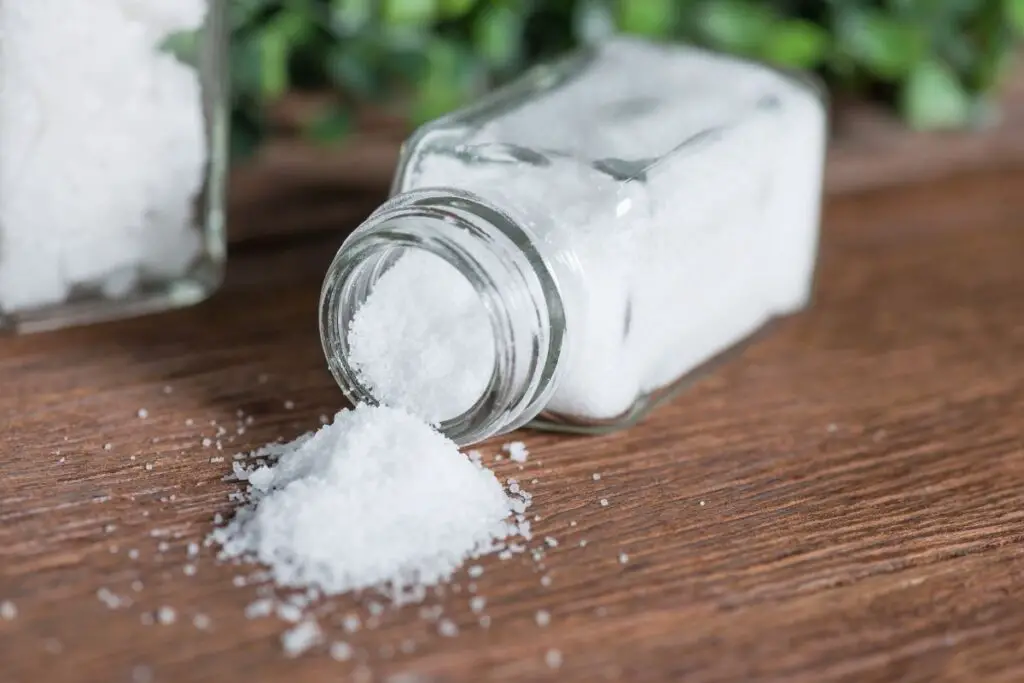
Is Epsom salt good for African violets?
Epsom salt is not just an ordinary salt. It is magnesium sulfate, consisting of magnesium and sulfur. When dissolved in water, Epsom salt releases positively charged magnesium ions and negatively charged sulfur ions.
The salt belongs to the place named Epsom, England. The water in Epsom consists of a high level of both magnesium and sulfur, which is known to be used in the region’s historic spas.
Nitrogen, phosphorous, and potassium are the essential macronutrients every plant needs to remain strong and healthy.
But along with that, other micronutrients like magnesium, sulfur, manganese, iron, boron, etc., are also needed for the plants’ survival. African violets are fussy about their requirements, and whenever there is a nutrient imbalance they start acting weird.
Magnesium is a vital nutrient that is necessary for the formation of chlorophyll and good photosynthesis. When the pH level of the soil reduces, the plant starts suffering from magnesium deficiency.
In such a case, Epsom salt plays a vital role. Adding some salt to the African violet soil bed or potting mix will solve the problem.
The same goes for sulfur. It is a vital nutrient required for the growth and long lifespan of African violets. It also plays a significant role in chlorophyll.
Not only does Epsom salt solve the problem of magnesium deficiency, but Epsom salt also helps in promoting blooms in the African violets.
However, using excessive Epsom salt or using it the wrong way can harm the African violets. As they are fussy, they will start reacting to the excess use of Epsom salt.
When should you use Epsom salt in African violets?
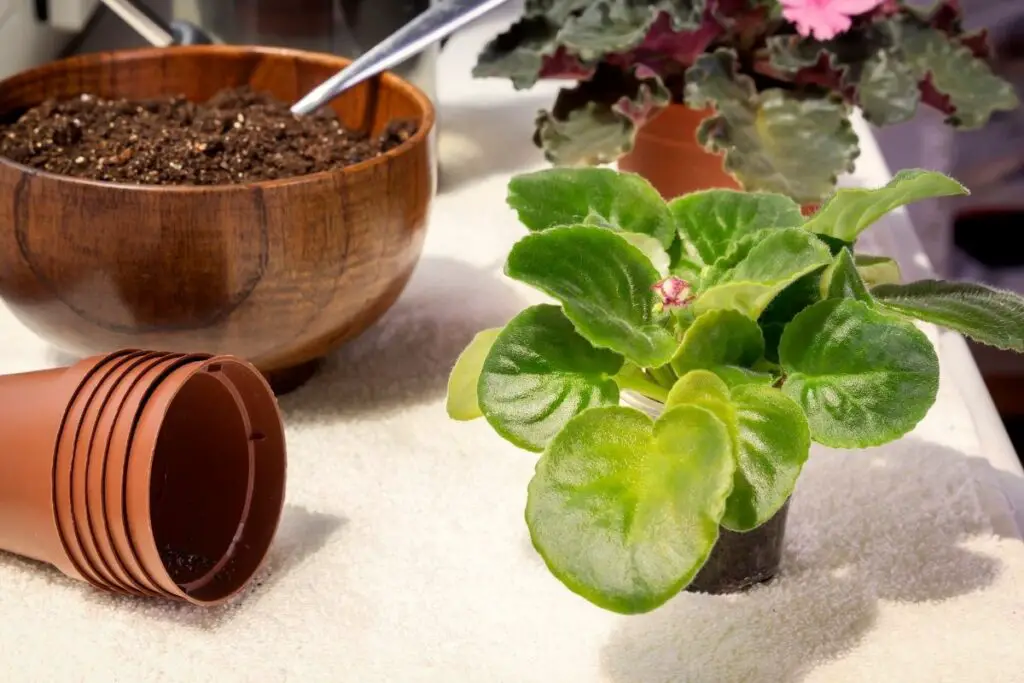
It is necessary to know the right time to use Epsom salt in African violets.
Mainly it should be used when you face any magnesium and sulfur deficiencies, and you can use it once every 1-2 months.
Sometimes, while preparing the soil mix, it can have low magnesium or a low pH level. This is when you can use Epsom salt. Your plant will show signs.
- The older leaves can get light green than average.
- Yellowing will start from the tips and edges and spread between the veins at the leaflet center.
- The tissues in between the veins will turn brown.
- The leaves will become brittle.
In such conditions, adding Epsom salt to the soil might solve the problem to some extent. The presence of hydrated magnesium and sulfur will increase the magnesium level in the plants.
Not only does low pH result in low magnesium, sometimes, but the fertilizer we use can also have low magnesium or no magnesium. In such conditions, too, you can use Epsom salt to maintain perfect magnesium.
Epsom salt is also known to play a good role in seed germination.
It helps in strengthening the cell walls in the seeds. It boosts the germination rate and will help in producing vigorous seedlings.
So, if you are planning to grow African violets by seeds, you can add Epsom salt to the soil before sowing them.
Epsom salt can be used as a fertilizer for African violets. Not as the main fertilizer, though.
It will help manage the magnesium level, and at the same time, it will improve flower production. Applying them once a month will help the African violets to trigger blooming.
Also read: What Kind Of Soil Is Best For African Violets? (+Best Soil Mix)
How to use Epsom salts on African violets?
There are different ways of adding Epsom salt in the African violet soil. The quantity and ratio depend on the application methods and the times you want to use them.
Remember not to perform foliar spraying of Epsom salt solution in African violets. African violet leaves are fuzzy that tend trapping water. So it is better to avoid foliar spraying.
Add 1-2lb of Epsom salt with 100 gallons of water and apply it over the soil bed by drenching it. This will help manage the magnesium deficiency in the plants and the pH level of the soil.
For a small patch, Mix 2 tablespoons of Epsom salt with 1 gallon of water in a watering can.
Fertilizing with Epsom salt once a month will help trigger a flush of blooms in the African violets.
Make sure that the water is tepid or room temperature. Pour this solution on the African violet soil, thoroughly drenching it. Avoid wetting the leaves, of course.
Another way of using Epsom salt is to prepare the soil mix before planting the African violets. Mix one cup of Epsom salt per 100 square feet in the soil bed. Now plant the African violets and then water them.
If you want to grow African violets by seeds, Epsom salt is helpful in such a case. Mix 1 tbsp of Epsom salt with 1-gallon water and apply it to the soil after sowing the seeds. This will make the cells of the seeds strong.
Epsom salt can also be used as a side dressing. By side-dressing, I mean to say as a mulch. Apply one tablespoon of Epsom salt around each plant during the growing season. It helps in retaining the nutrients and also speeds up nutrient absorption.
Whenever you are applying Epsom salt, make sure you do not apply excess salt. Otherwise, instead of any good, they will harm your plants.
Benefits of using Epsom salt in African violets
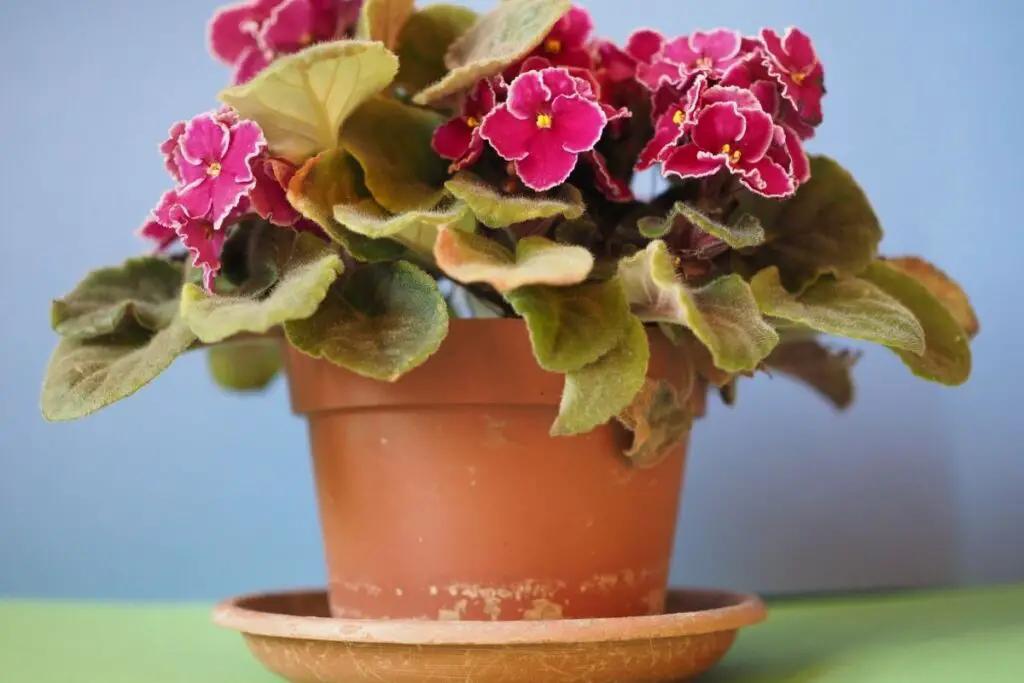
A hydrated magnesium sulfate, Epsom salt will provide your African violets with a lot of benefits.
Adding magnesium to the soil
If the African violets face magnesium deficiency due to low pH or the fertilizer you use, adding Epsom salt (magnesium sulfate) to the soil bed will maintain a good magnesium level for these plants.
Looking for gardening supplies? We have tested 100's of products before recommending them to you guys. Check out our best pick below:
| Image | Gardening Supplies | Best Price? |
|---|---|---|
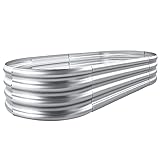 Top
Top Top
Top | Raised Garden Bed Kit | Check On Amazon |
 | XLUX Soil Moisture Meter, Plant Water Monitor, Soil Hygrometer Sensor for Gardening, Farming, Indoor and Outdoor Plants, No Batteries Required | No Results |
 Top
Top Top
Top | 82 Pcs Garden Tools Set and Extra Succulent Tools Set | Check On Amazon |
 | Joeys Garden Expandable Garden Hose with 8 Function Hose Nozzle, Lightweight Anti-Kink Flexible Garden Hoses, Extra Strength Fabric with Double Latex Core, (50 FT, Black) | No Results |
 Top
Top Top
Top | Dual Chamber Compost Tumbler | Check On Amazon |
 Top
Top Top
Top | Sunnyglade Plant Stakes | Check On Amazon |
 Top
Top Top
Top | Organic Cold Pressed Neem Seed Oil | Check On Amazon |
 Top
Top Top
Top | Mighty Mint Gallon :-Insect and Pest Control Peppermint Oil | Check On Amazon |
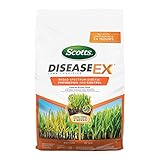 Top
Top Top
Top | Scotts DiseaseEx Lawn Fungicide | Check On Amazon |
 Top
Top Top
Top | Jacks Classic 20-20-20 All Purpose Fertilizer | Check On Amazon |
 Top
Top Top
Top | 30,000 Seeds Pollinator Attracting Wildflower Mixture | Check On Amazon |
 Top
Top Top
Top | Survival Vegetable Seeds Garden Kit-Over 16,000 Seeds | Check On Amazon |
Heightens nutrient absorption
To keep the African violets strong and healthy, you need to provide a good amount of nutrients. A balanced fertilizer will be good for them.
Before you add Epsom salt to the soil, it is better to check the soil’s pH level or know whether the soil has enough magnesium or not. If the soil is alright, then adding Epsom salt over it will only harm the African violets.
Also, if your fertilizer does not have magnesium, you might have to use Epsom salt.
Magnesium helps in increasing the absorption rate in the African violets. Adding Epsom salt will speed up the absorption of nutrients like nitrogen, phosphorous, potassium, and other nutrients.
It makes the leaves green
Magnesium plays a crucial role in chlorophyll formation. It is responsible for keeping the plants green.
Chlorophyll is also vital for photosynthesis. Using Epsom salt once a month will keep the leaves green.
Balances nutrient levels
When your plant is experiencing magnesium deficiency, it causes an imbalance in the nutrient level. Since magnesium is a common nutrient responsible for absorbing other nutrients, a lack of it can turn the plant unhealthy.
Adding Epsom salt will solve this problem. It will correct the magnesium level in the African violets. As a result, your plant will regain its nutrition balance.
Neutralizes soil pH
If your African violet soil has a high pH, adding Epsom salt will help correct the pH level of the soil.
It will gradually start increasing the acidity in the soil. Epsom salt contains sulfur which plays a role in neutralizing the pH level in the soil bed.
Helps in blooming
When used once a month as a fertilizer, Epsom salt will help the African violets trigger blooming.
As Epsom salt is rich in magnesium and sulfur, dissolving Epsom salt and water and drenching the African violet bed will promote abundant blooms in the plant.
Avoids pests
The hydrated magnesium and sulfur crystals play an indispensable role in irritating the feet and bodies of the pests. However, you should not use Epsom salt in the first place if your plant is infected. You can use it occasionally to keep the pests away.
Can too much Epsom salt hurt the African violets?
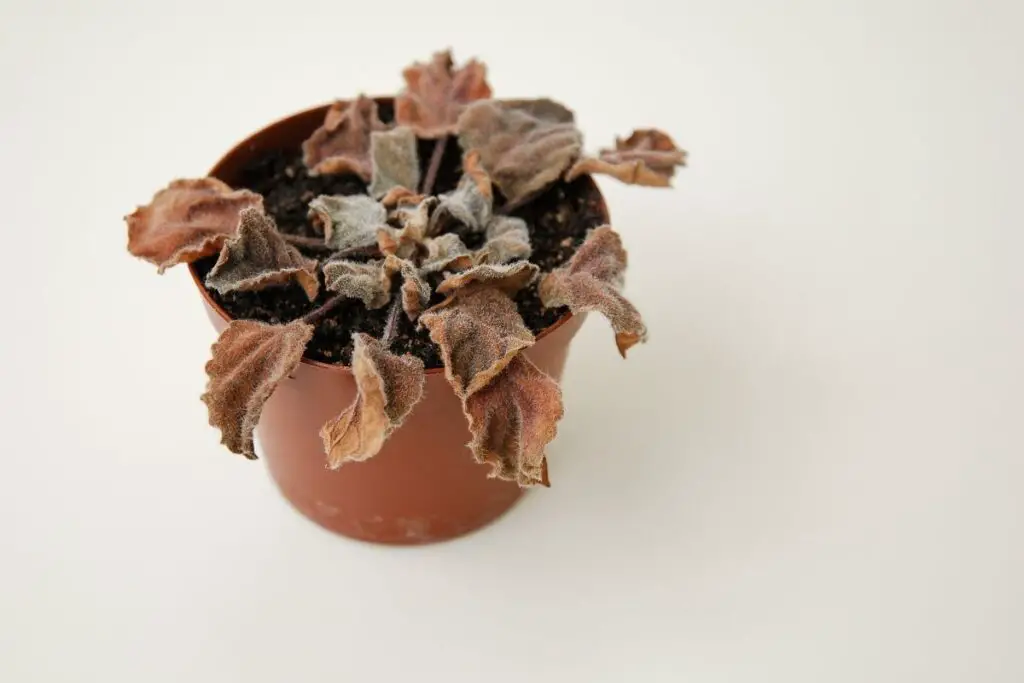
There is no doubt that Epsom salt can play a significant role for African violets. But using excessive Epsom salt will harm the African violets.
Wilted African violets
Although Epsom salt is magnesium sulfate, in the end, it is a salt. Excessive salt will make it difficult for the African violet to absorb water.
The salt will absorb all the water, and the plant won’t get any. They will remain dehydrated and start wilting. This will affect the health of the African violets.
Nutrient imbalance
As I said earlier, African violets are fussy. Depriving them of any requirements or overdoing anything will result in bad health of the plants.
Before applying Epsom salt in the African violet bed for improving magnesium, wait for the signs of magnesium deficiency or check the pH level.
If the soil already has the right amount of magnesium and sulfur, adding more salt will create an imbalance of nutrients.
So, before doing anything, check for the signs of magnesium deficiency or low pH level. Less magnesium won’t harm the plant.
Leaf scorch
Do not apply Epsom salt directly to the foliage of the African violet. Even using it as a fertilizer by mixing with water is recommended to avoid the leaves.
When applied in the foliage, the Epsom salt solution, the leaves will trap the water in them and cause rot. As the leaves are fuzzy, they tend to trap water.
Applying Epsom salt directly on the leaves causes leaf burns in the plant. As a result, the plants will become weak and susceptible to pests and diseases.
Releases aluminum from the soil
Excessive use of Epsom salt results in the release of aluminum from the soil. Aluminum is poisonous metal for all sorts of living organisms in the soil, including plants, of course.
The release of aluminum will make the root tip cells stop the root system’s development in the African violets. As a result, the African violets will no longer remain and healthy and will die.
Aluminum will also decrease the absorption rate of water and nutrients by the plants.
When should you not use Epsom salt in the African violets?
Although there are many reasons and situations when you must use Epsom salt for the tremendous growth of African violets, there are some conditions to avoid using Epsom salt.
As the main fertilizer
Earlier I mentioned that Epsom salt should not be used as the main fertilizer for African violets. Use a balanced fertilizer or fertilizers suitable for African violets.
A balanced fertilizer means it contains NPK with the ratio of 10-10-10 or 20:20:20. Speaking of Epsom salt, it has an NPK value of 0-0-0.
It is only used to manage the nutrient balance and increase magnesium levels. It does not give the plants nitrogen, phosphorous, potassium, or any other micronutrients.
Also read: What Kind Of Fertilizer Is Good For African Violets? (+Best Picks)
Magnesium deficient plant
A plant undergoing magnesium deficiency does not always mean that Epsom salt can solve the problem.
If your African violet is too high in phosphorous or calcium, you need to manage the level of these two nutrients instead of managing the magnesium. Adding Epsom salt will not do any good. Instead, it will delay the actual treatment, resulting in deterioration.
African violet care tips
- African violets need good drainage and moisture for growth. Make sure that the soil supports both drainage and moisture retention.
- Try providing them filtered sun, as they won’t bear the direct sun. Choose an ideal spot in your garden before planting them.
- Fertilizing them during their growing season will keep them strong and healthy. Reduce fertilizing in winters.
- Water well at least once a week.
Final words
Epsom salt is an excellent material for African violets.
Not only does it allow to manage the magnesium deficiency, but it also helps in heightening absorption of nutrients, encouraging blooms, and protecting from pests.
Using Epsom salt for African violets is a good choice. Only make sure you don’t overdo it. Use it only when needed. Use it singularly with water. Do not mix with any other fertilizers.
Source: Wikipedia, African violet: Classical breeding, African Violet Society of America, In vitro propagation of African violet, University of Florida, North Dakota State University, The University of Georgia.
